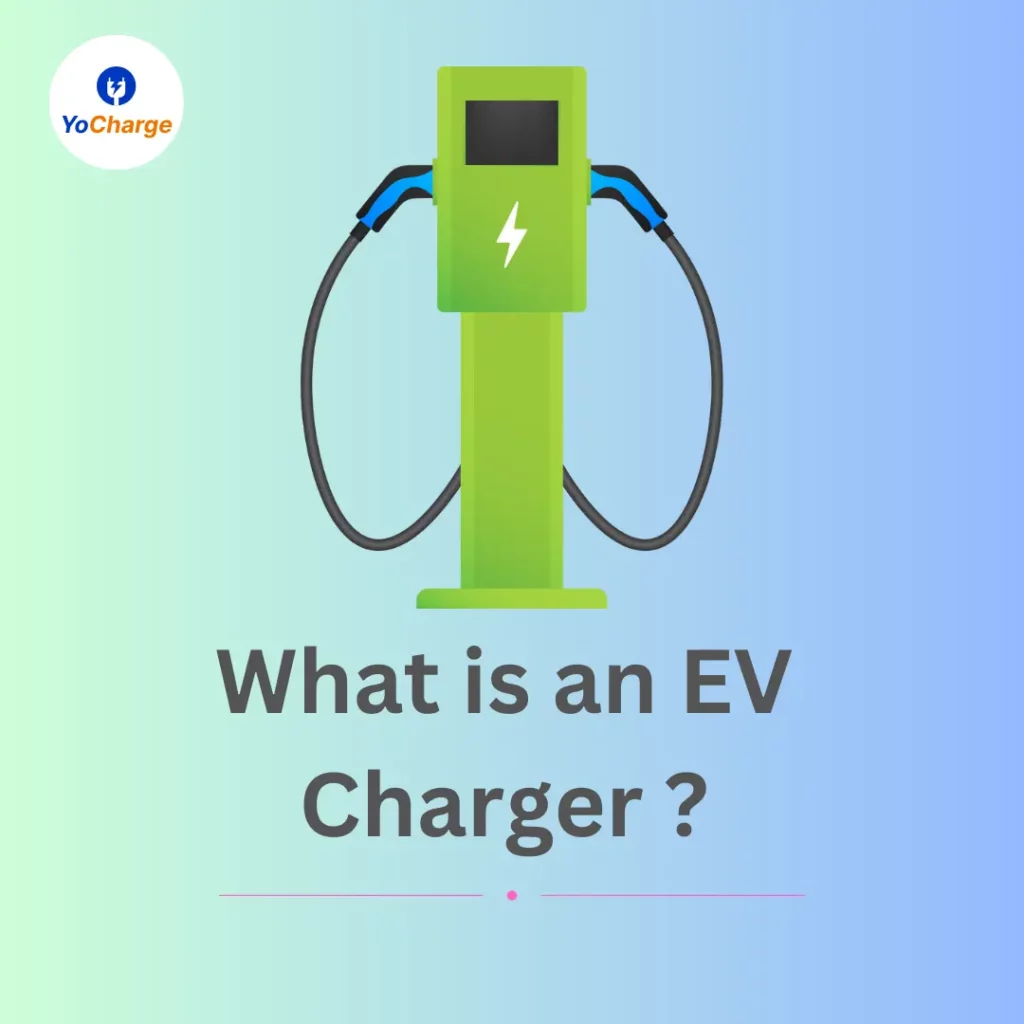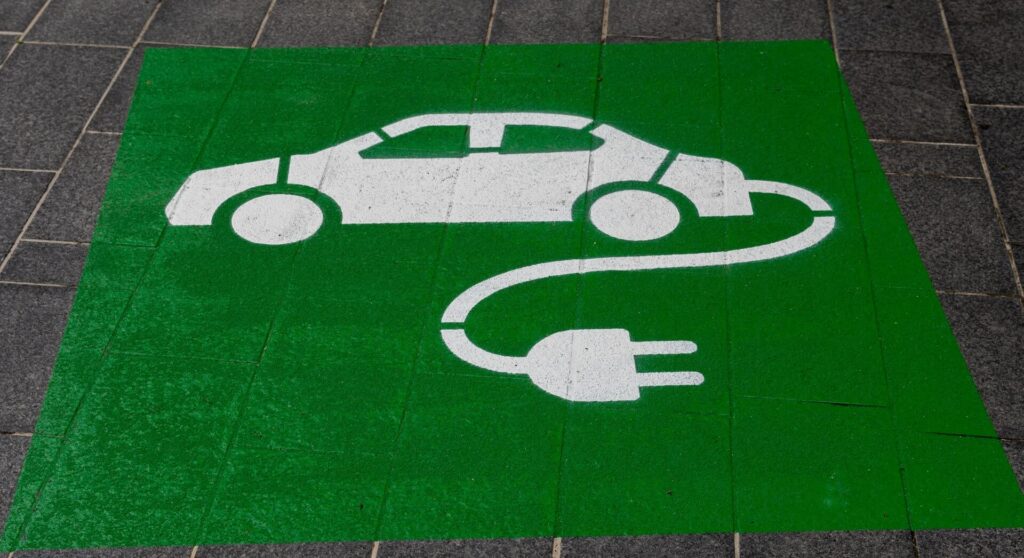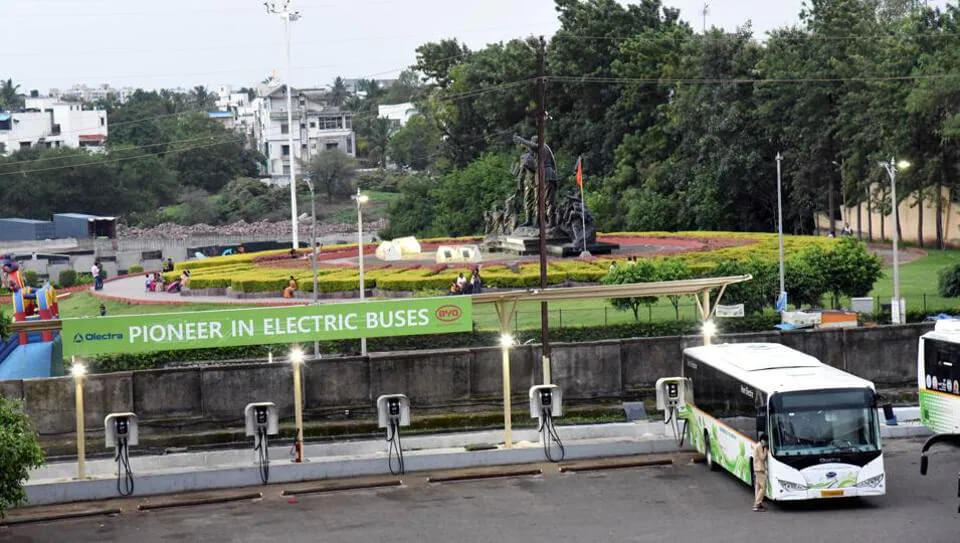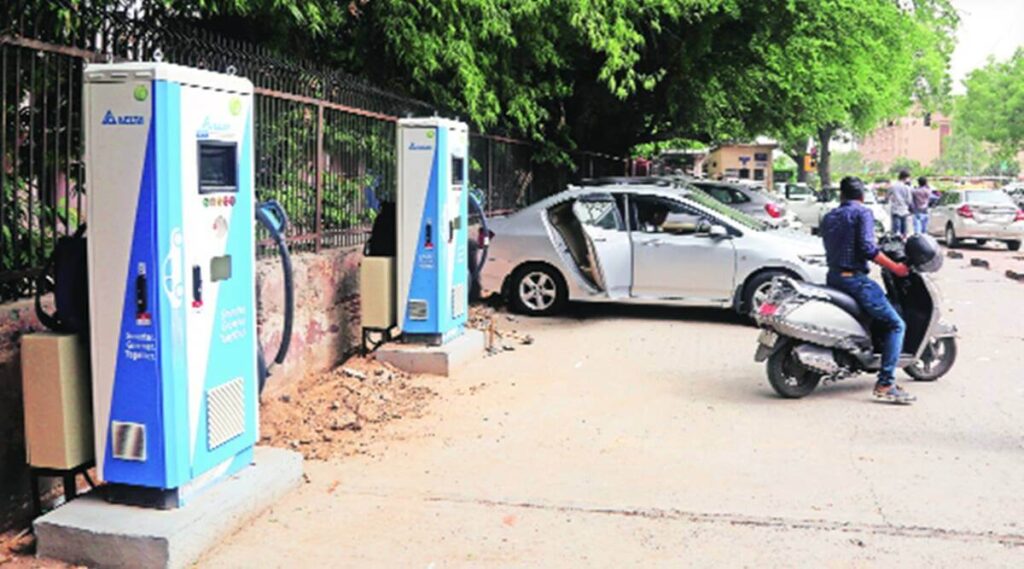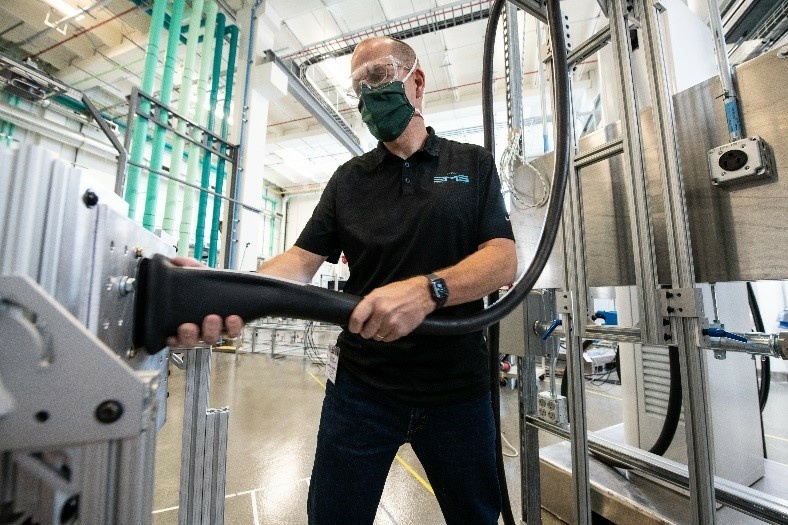
To satisfy the market demand of the Truck and Bus industry to charge electric heavy-duty vehicles within a reasonable time, a new solution for high-power charging is needed. Hence, a charging system is being developed for large battery electric vehicles which is called the Megawatt Charging System (MCS). The MCS is rated for the highest charging rate of 3.75 megawatts (3,000 amps at 1,250 volts direct current (DC).
In 2018, CharIN initiated the Task Force “Megawatt Charging System (MCS)” to invent a holistic system approach based on the Combined Charging System CCS. The CharIN organization is working to advance the MCS connector with the goal of making it a universally accepted charging connector for large and medium commercial vehicles, whether they are on land, water, or in the air, but other large vehicle charging interfaces are also developing and being put into serial production.
The following mission statement guided the formation of the CharIN Task Force Megawatt Charging System (MCS), “Work out requirements for a new commercial vehicle high power charging solution to maximize customer flexibility when using fully electric commercial vehicles. The scope of the technical recommendation is to be limited to the connector, and any related requirements for the EVSE, the vehicle, communication, and related hardware.”
Public electric truck charging station in Portland, Oregon which is named as Electric Island is the first of its kind where Daimler Trucks North America and Portland General Electric collaborate (PGE & DTNA). The area has been set up for the installation of the MCS charger and the Battery Storage.
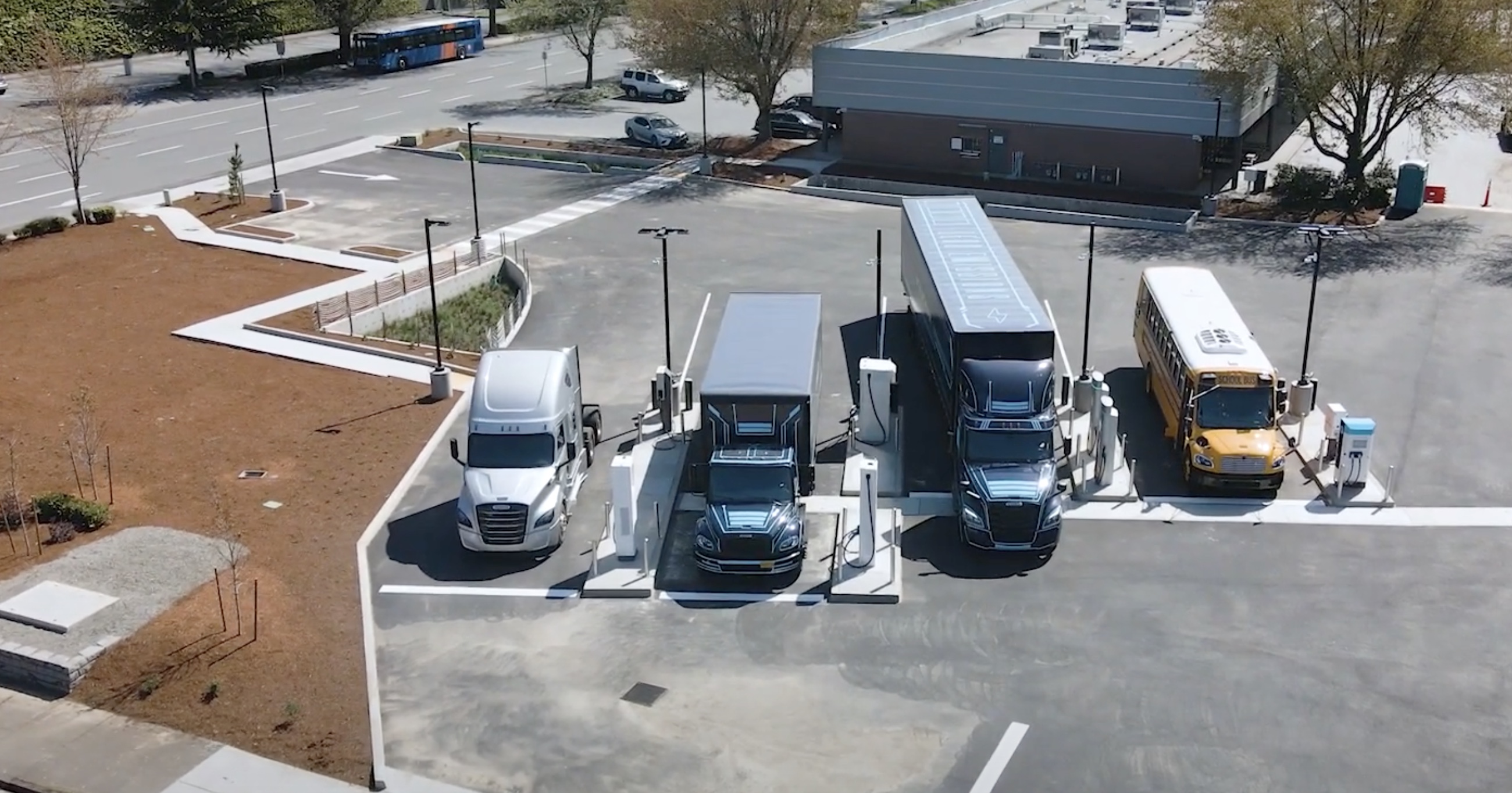
Design Requirements
The design requirements of the MCS are as follows :
- Single conductive plug
- Maximum of 1250 V DC and 3000 A[2]
- PLC + ISO/IEC 15118 (ISO 15118-20 Communication Protocols allows bi-directional energy flow for vehicle-to-grid (V2G), Smart Charging, Encrypted Communication, Plug ‘n Charge, Automated Charging)
- Touch Safe (UL2251)
- On-handle software-interpreted override switch
- Adherence to OSHA / ADA (or local equivalent) standards (dictates sizes using anthropometric data and masses using ergonomic data)
- FCC Class A EMI (or local equivalent)
- Located on driver’s side of the vehicle, hip height (ergonomics)
- Capable of being automated
- UL / NRTL certified
- Cyber-Secure
- V2X (bi-directional)
Although the initial focus of MCS was mostly on large trucks and buses, it is intended for Class 6, 7, and 8 commercial vehicles. There are also possible MCS applications for the aerospace (e-VTOL, e-Planes, etc.) and marine (tug-boats, e-Ferries, river cargo vessels, etc.) industries. It is mostly utilized in large battery electric vehicles (BEVs) that have enormous battery packs and the capacity to take charge rates greater than 1MW.
The Combined Charging System’s (CCS) integrated system approach must be followed by the Megawatt Charging System (MCS). Maximum use of the existing CCS basic elements and its related standards, in relation to the enormous quantity of CCS engineering expertise, secures quality and shortens time to market. For market introduction and market stability, compatibility will be a crucial success factor.
Successful connector test event at NREL
Another significant step toward creating appropriate connector and inlet designs for medium- and heavy-duty electric cars was made on September 23–24, 2020. Representatives from several industries tested, gave feedback on, and assessed the compatibility of the inlet and connectors for megawatt chargers at the National Renewable Energy Laboratory’s (NREL) facilities. Leading OEMs, utilities, equipment producers, and component suppliers were among them.
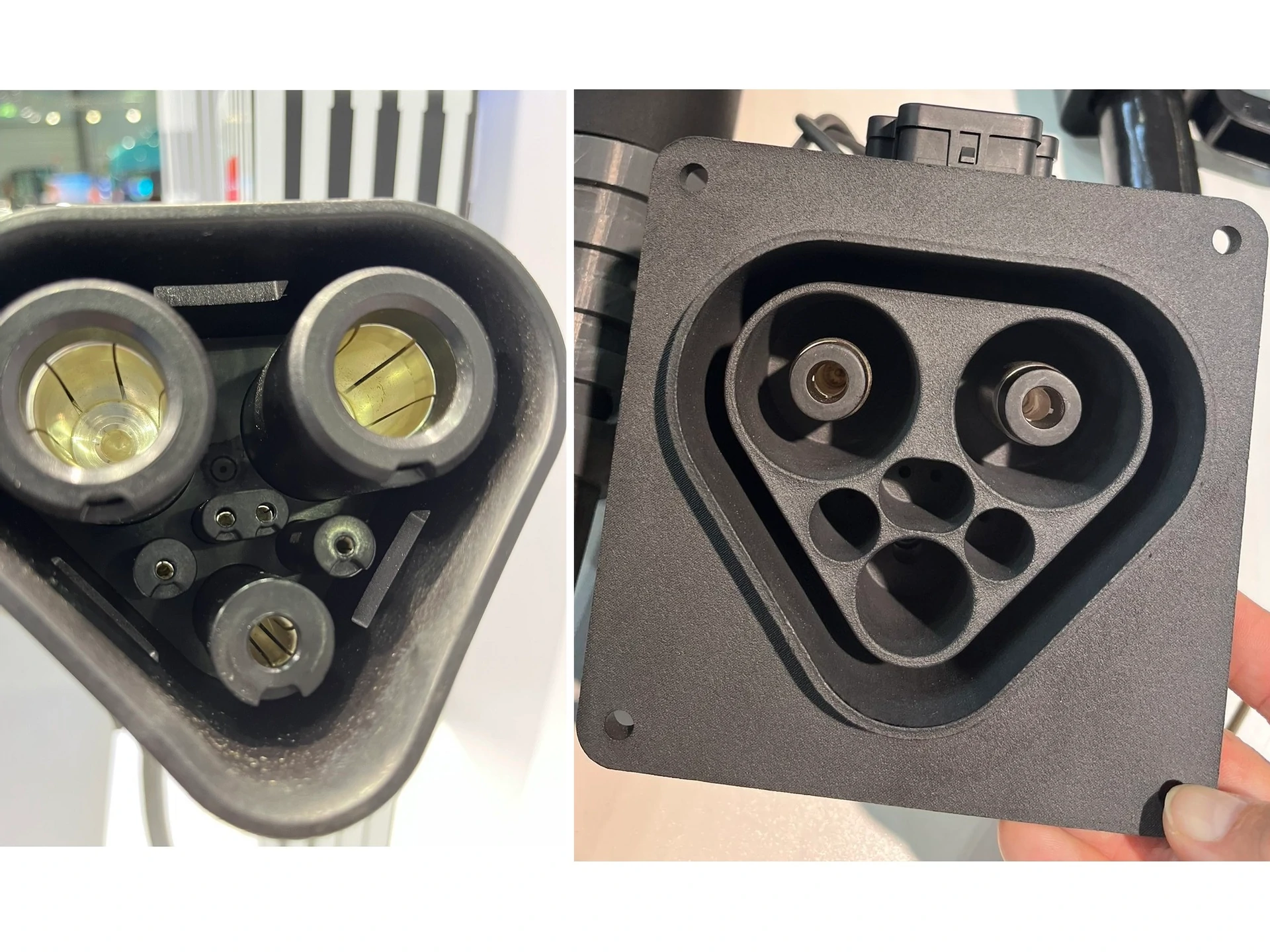
Seven car inlets and eleven charger connectors were able to test their ideas together at this event. The facilities of NREL provided a gathering place for comparing parts from the seven various manufacturers who participated in the hardware evaluations physically and virtually with prototypes. A virtual CharIN Megawatt Charging System (MCS) Task Force meeting to examine the evaluations was held after the event.
This event’s main objective was to encourage the development of an international Megawatt Charging System (MCS) standard in order to guarantee the interoperability of connections and inlet hardware made by various manufacturers. The staging of this event and the insightful feedback from the American CharIN member community in particular helped to advance the creation of an industry standard for megawatt chargers. The new standard built on CCS will simplify market entry and promote market stability.
Read About – YoCharge White-labelled EV Charging Software
